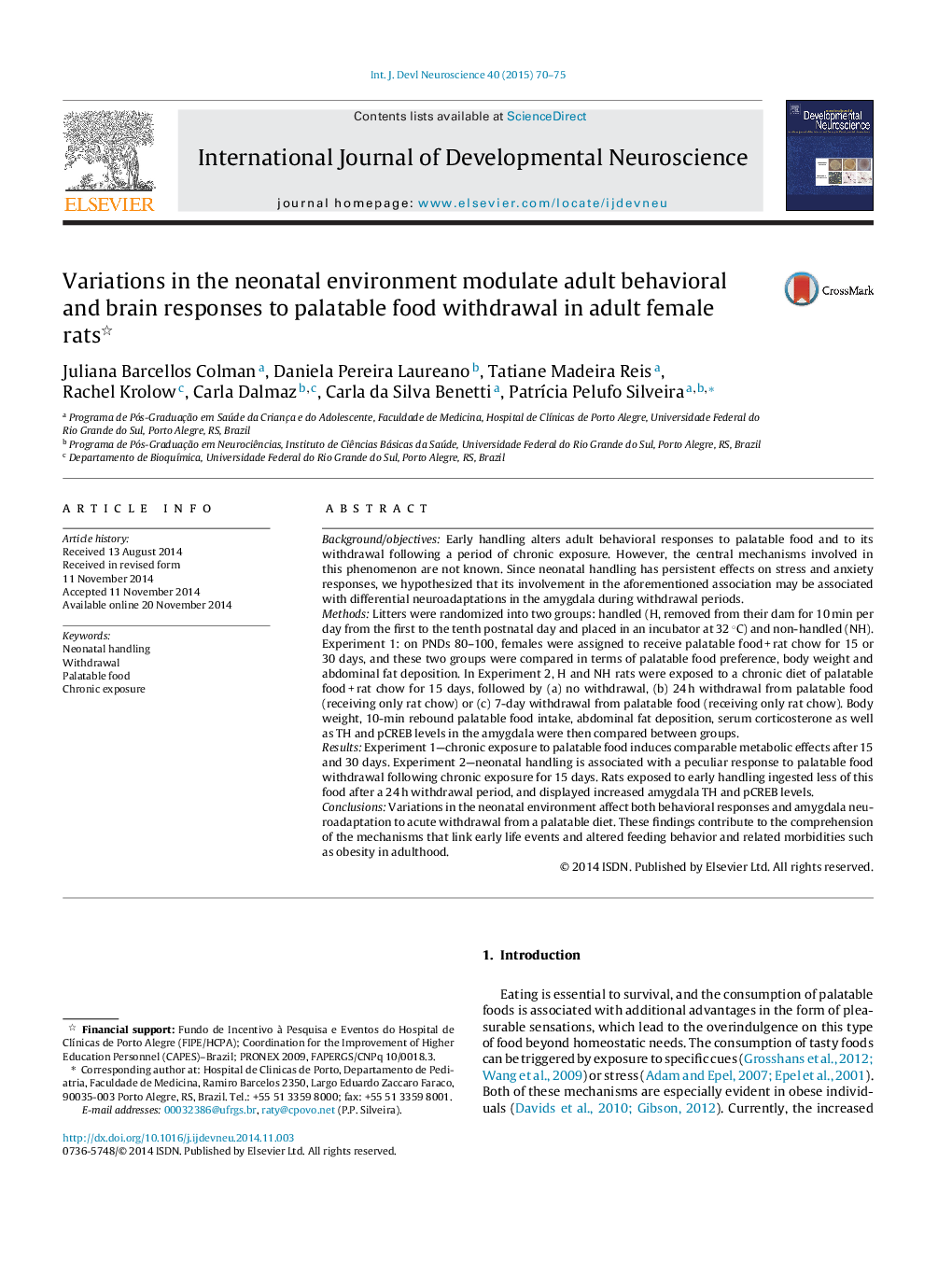| کد مقاله | کد نشریه | سال انتشار | مقاله انگلیسی | نسخه تمام متن |
|---|---|---|---|---|
| 2785863 | 1568391 | 2015 | 6 صفحه PDF | دانلود رایگان |
• Variations in the neonatal environment affect behavioral responses.
• Neonatal handling alters the adult behavior to palatable food.
• Handling affects amygdala neuroadaptation to acute withdrawal from a palatable diet.
• Handling is able to persistently modulate the behavioral and neurochemical response.
• This study can contribute to development of obesity prevention strategies.
Background/objectivesEarly handling alters adult behavioral responses to palatable food and to its withdrawal following a period of chronic exposure. However, the central mechanisms involved in this phenomenon are not known. Since neonatal handling has persistent effects on stress and anxiety responses, we hypothesized that its involvement in the aforementioned association may be associated with differential neuroadaptations in the amygdala during withdrawal periods.MethodsLitters were randomized into two groups: handled (H, removed from their dam for 10 min per day from the first to the tenth postnatal day and placed in an incubator at 32 °C) and non-handled (NH). Experiment 1: on PNDs 80–100, females were assigned to receive palatable food + rat chow for 15 or 30 days, and these two groups were compared in terms of palatable food preference, body weight and abdominal fat deposition. In Experiment 2, H and NH rats were exposed to a chronic diet of palatable food + rat chow for 15 days, followed by (a) no withdrawal, (b) 24 h withdrawal from palatable food (receiving only rat chow) or (c) 7-day withdrawal from palatable food (receiving only rat chow). Body weight, 10-min rebound palatable food intake, abdominal fat deposition, serum corticosterone as well as TH and pCREB levels in the amygdala were then compared between groups.ResultsExperiment 1—chronic exposure to palatable food induces comparable metabolic effects after 15 and 30 days. Experiment 2—neonatal handling is associated with a peculiar response to palatable food withdrawal following chronic exposure for 15 days. Rats exposed to early handling ingested less of this food after a 24 h withdrawal period, and displayed increased amygdala TH and pCREB levels.ConclusionsVariations in the neonatal environment affect both behavioral responses and amygdala neuroadaptation to acute withdrawal from a palatable diet. These findings contribute to the comprehension of the mechanisms that link early life events and altered feeding behavior and related morbidities such as obesity in adulthood.
Journal: International Journal of Developmental Neuroscience - Volume 40, February 2015, Pages 70–75
